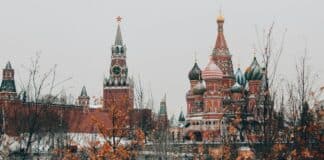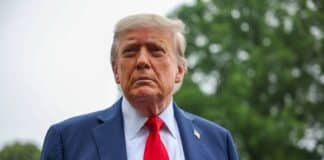More than eight months after the worst attack on Washington since the Civil War, as Joe Biden describes it, not a single American has been charged with sedition or treason related to the alleged “insurrection” on January 6, 2021.
As Ben Boychuk explained in his Thursday essay, despite many harsh warnings insisting the government would build sedition cases, so far Biden’s Justice Department has failed to live up to its promise.
That’s not to say, of course, that the abusive “Capitol breach” probe hasn’t been a big success for those seeking revenge against Americans who protested Joe Biden’s election. The lives of at least 600 Americans have been destroyed—families torn apart, finances bankrupted, reputations forever tarnished, and dozens held in prison, denied bail, and awaiting trials that won’t begin until next year.
But the Justice Department’s premier felony charge—obstruction of an official proceeding—is on shaky legal ground, to say the least. It’s a substitute for the sedition cases they cannot prove in court.
Prosecutors have slapped the felony count, which is punishable by up to 20 years in jail, against at least 200 defendants, including mostly misdemeanor cases, in an attempt to turn Trump-supporting trespassers into convicted felons.
Several defendants, including Jacob Chansely, the so-called QAnon Shaman, and Paul Hodgkins have pleaded guilty to the charge; both will serve prison time even though neither man has a criminal record. (Chansley has been behind bars since January. Judge Royce Lamberth refuses to release Chansley from jail, despite pleas from his attorney that he suffers from mental health issues.)
The statute, which I explained in a March column, was passed by Congress in response to the Enron scandal. It’s a clause under 18 U.S. Code section 1512, which criminalizes attempts to tamper with a witness or evidence. When George W. Bush signed the “obstruction of an official proceeding” provision in 2002, he specifically warned the law should not infringe on “the constitutional right to petition the Government for redress of grievances.”
That, however, is exactly how Joe Biden’s Justice Department is applying the statute. Unsatisfied with simply charging Capitol protesters for criminal behavior, such as assaulting police officers or damaging government property, prosecutors are twisting the intent of the obstruction charge to punish belief in “the Big Lie” that the 2020 election was stolen.
But two federal judges are not convinced the government is on solid legal or constitutional footing.
When a federal prosecutor on Wednesday told Judge Amit Mehta that the law was “unambiguous.” Mehta pushed back. “I wish it were that simple,” Mehta told assistant U.S. Attorney Jeffrey Nestler during a hearing to dismiss the obstruction charge against all 17 defendants in the Oath Keepers case. (Two Oath Keepers already pleaded guilty to the charge.)
David Fischer, the lawyer representing Thomas Caldwell, last month filed the motion, which was joined by Caldwell’s co-defendants. The purpose of the law, Fischer argued, was to protect congressional investigations, not ceremonial events such as the certification of the Electoral College, which did not involve the normal features of an investigative inquiry. “On January 6th, sworn testimony was not being taken, witnesses were not summoned, and documents were not subpoenaed,” Fischer wrote. “In short, Congress was not remotely engaged in any activity that could fairly be described as justice-related.”
Read the full article here.






